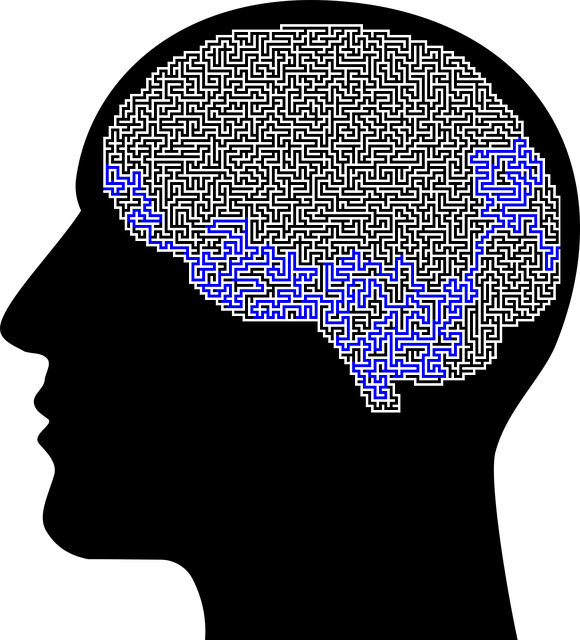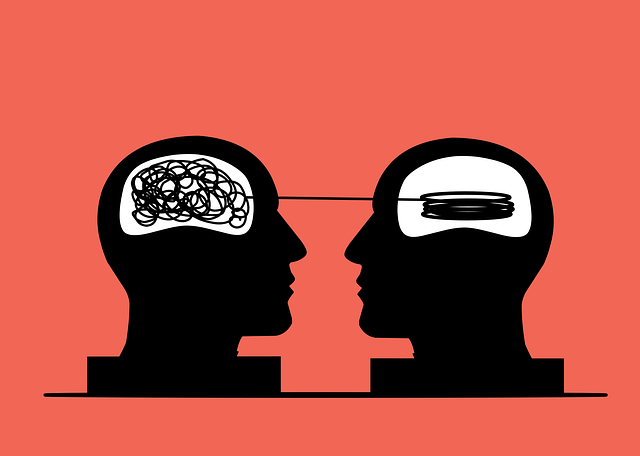Wheat Ridge Cognitive Behavioral Therapy (WR CBT) emphasizes cultural competency as a key strategy for providing inclusive mental health care. By understanding and respecting diverse cultures, WR CBT therapists tailor their approach to bridge gaps in communication and comprehension. This training improves patient outcomes, strengthens therapeutic relationships, and reduces stigma by fostering trust. WR CBT's immersive training uses workshops, case studies, and role-play to equip healthcare providers with practical skills for engaging diverse patients effectively, ensuring quality care for all.
In today’s diverse healthcare landscape, cultural competency is no longer an option—it’s essential. This comprehensive guide explores the critical role of training in fostering inclusivity and sensitivity among healthcare providers. We delve into strategies employed by leaders like Wheat Ridge Cognitive Behavioral Therapy to bridge cultural gaps. Understanding barriers faced by diverse patient populations is key; this article also provides insights on identifying and overcoming these challenges. Through training programs, healthcare professionals can enhance their approach, ultimately improving patient care and outcomes.
- Understanding Cultural Competency in Healthcare: A Necessary Approach
- The Role of Wheat Ridge Cognitive Behavioral Therapy in Fostering Diversity
- Identifying Barriers: Challenges Faced by Diverse Patient Populations
- Training Strategies: Equipping Healthcare Providers for Cultural Sensitivity
- Measuring Success: Evaluating the Impact of Cultural Competency Programs
Understanding Cultural Competency in Healthcare: A Necessary Approach

Cultural competency in healthcare is an essential aspect that has gained significant attention in recent years. It involves understanding and appreciating the diverse cultural backgrounds, beliefs, and values of patients, especially in a country like the United States with its vast and varied population. In the context of Wheat Ridge Cognitive Behavioral Therapy, therapists must be equipped to navigate complex cultural landscapes to provide effective treatment. This approach ensures that mental health professionals can offer tailored care, bridging any gaps between service delivery and patient understanding.
By integrating cultural competency training into their practice, healthcare providers, particularly those specializing in therapy like Wheat Ridge Cognitive Behavioral Therapy, can enhance patient outcomes and build stronger therapeutic relationships. Moreover, it plays a crucial role in risk management planning for mental health professionals by reducing potential errors and improving safety. This is especially relevant when addressing mental illness stigma reduction efforts, as culturally sensitive practices can foster trust and encourage individuals to seek help without fear of judgment or discrimination.
The Role of Wheat Ridge Cognitive Behavioral Therapy in Fostering Diversity

Wheat Ridge Cognitive Behavioral Therapy (WR CBT) stands out as a beacon of diversity and inclusivity in the mental health landscape. This therapeutic approach isn’t just about treating individual minds; it’s designed to empower individuals within diverse cultural contexts. WR CBT therapists are trained to understand and appreciate the unique challenges faced by clients from various ethnic, racial, and socio-economic backgrounds. They utilize this knowledge to create safe, supportive spaces where Inner Strength Development can flourish.
Through its meticulously designed Mental Health Education Programs, WR CBT goes beyond traditional therapy. It equips individuals with effective Stress Reduction Methods tailored to their specific cultural needs. By fostering open dialogue and promoting cultural competency, WR CBT helps bridge the gap between diverse communities and mental health services, ensuring that everyone has access to quality care.
Identifying Barriers: Challenges Faced by Diverse Patient Populations

In today’s diverse healthcare landscape, wheat ridge cognitive behavioral therapy (CBT) has become a cornerstone in addressing the unique needs of various patient populations. However, providing culturally competent care is not without challenges. Many patients from different ethnic, cultural, or socioeconomic backgrounds face barriers that can hinder effective treatment. These include language differences, cultural miscommunications, and limited access to mental health education programs designed to cater to their specific communities. For instance, in crisis intervention scenarios, the use of standard interventions might not resonate with individuals from diverse cultures, underscoring the need for tailored guidance.
Effective CBT therapy requires sensitive communication strategies that bridge these gaps. Healthcare providers must be trained to navigate complex cultural dynamics, ensuring every patient receives personalized care. This involves learning about different cultural beliefs and practices related to mental health, which can significantly impact treatment expectations and outcomes. By incorporating crisis intervention techniques within a culturally sensitive framework, healthcare professionals can better serve diverse patient populations, fostering an inclusive environment where all individuals feel heard and understood.
Training Strategies: Equipping Healthcare Providers for Cultural Sensitivity

Effective cultural competency training is an essential component of healthcare provider education, ensuring they are equipped to deliver sensitive and effective care to a diverse range of patients. At Wheat Ridge Cognitive Behavioral Therapy, we recognize that understanding cultural nuances is critical for fostering trust and improving patient outcomes, especially in areas like mental health awareness. Our therapy programs focus on developing cultural sensitivity in mental healthcare practice by offering immersive learning experiences.
Through interactive workshops, case studies, and role-play scenarios, providers gain practical skills to navigate complex cultural interactions. These strategies not only enhance their ability to communicate effectively with patients from different backgrounds but also promote a deeper understanding of the impact of culture on mental wellness coaching programs development. By embracing these training methods, healthcare professionals can better address the unique needs of their diverse patient population, ultimately contributing to improved access and quality in mental healthcare services.
Measuring Success: Evaluating the Impact of Cultural Competency Programs

Evaluating the success of cultural competency training is paramount to understanding its true impact on healthcare delivery. Programs aimed at enhancing cultural competence must be designed with clear outcomes and measurable metrics. This includes assessing improvements in patient satisfaction, health outcomes, and provider attitudes towards diverse communities. By implementing regular assessments and feedback mechanisms, healthcare organizations can gauge whether these initiatives are fostering a more inclusive environment.
For instance, Wheat Ridge Cognitive Behavioral Therapy (WRCBT) has incorporated cultural competency training into its curriculum, focusing on mood management, burnout prevention, and depression prevention. The program’s effectiveness is measured through post-training evaluations, where participants reflect on their enhanced understanding of cultural nuances and their potential impact on patient care. These insights are invaluable in refining the training curriculum and ensuring it aligns with the evolving needs of a diverse healthcare landscape.
Healthcare provider cultural competency training, as exemplified by the innovative programs at Wheat Ridge Cognitive Behavioral Therapy, is a vital step towards creating inclusive and effective healthcare systems. By addressing barriers faced by diverse patient populations and implementing tailored training strategies, we can ensure that all individuals receive compassionate and culturally sensitive care. Measuring the success of these initiatives is crucial for continuous improvement and enhancing health outcomes for every community member.














